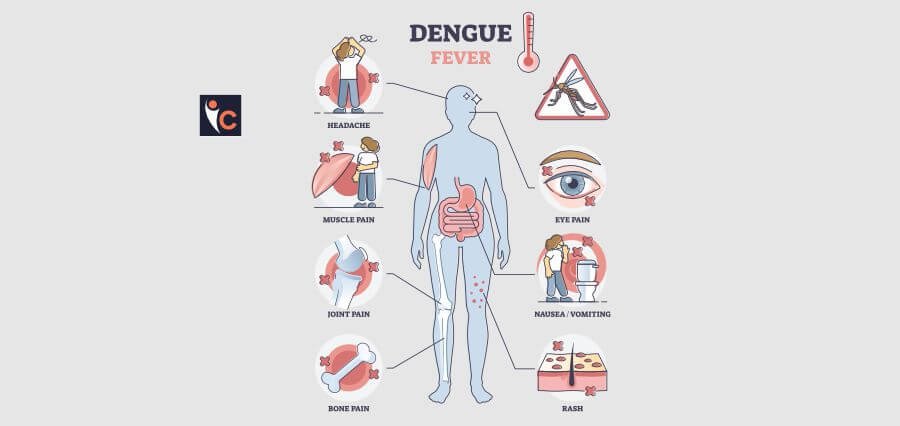Amid the monsoon season in India, dengue cases have surged across various regions, including Karnataka, Kerala, Telangana, Andhra Pradesh, Odisha, Delhi, and Maharashtra. While dengue typically causes mild flu-like symptoms, experts warn that the mosquito-borne viral illness can also have serious neurological effects that are often overlooked.
Recent data from the Municipal Corporation of Delhi (MCD) indicates that as of June 30 this year, Delhi has reported 246 dengue cases. In comparison, the same period saw 122 cases in 2023, 143 cases in 2022, 36 cases in 2021, and 20 cases in 2020.
“Although dengue is primarily known for causing flu-like symptoms, it can also lead to significant neurological issues,” said Dr. Praveen Gupta, Principal Director & Chief of Neurology at Fortis Hospital Gurugram, to IANS. “Neurological manifestations of dengue, though less common, include encephalitis, meningitis, and myelitis. These conditions occur when the virus crosses the blood-brain barrier, leading to inflammation and infection of the brain and spinal cord.”
Patients with severe dengue may experience headaches, altered mental status, seizures, and even coma. The virus’s ability to infect neural cells directly, coupled with the immune response it triggers, can exacerbate these neurological issues, complicating management.
Dengue, a vector-borne disease transmitted by the bite of an infected Aedes mosquito, is endemic to more than 100 countries and affects about 400 million people globally each year. The monsoon season significantly escalates dengue fever cases due to increased mosquito breeding in stagnant water and higher humidity, creating ideal conditions for the Aedes mosquito to thrive.
“Dengue can impact various parts of the human body, including the nervous system,” said Dr. Srikantha Swamy, Lead Senior Consultant of Neurology at Aster RV Hospital Bengaluru, to IANS. “When the nervous system is affected, it can present like brain fever. Patients may experience altered consciousness, difficulty speaking, strokes, seizures, and even brain bleeding due to low platelet counts. Low platelet levels, common in dengue, can lead to bleeding in different parts of the body, including the brain. When this happens, the prognosis is usually poor.”
Read More: Click Here





